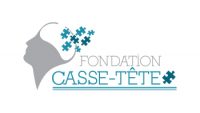FAQ
Tu trouveras ici des réponses aux questions que tu pourrais te poser. Tu as une question en particulier? Écris-nous : [email protected]Who could suffer from an eating disorder
It is important to know that no matter the age, the gender, the sexual orientation, the religion or cultural background, anyone could suffer from an eating disorder.
What are the factors that come into account in the development of eating disorder?
There are a multitude of factors that play a role in a person that suffers from an eating disorder. In other words, there is not only one cause but a combination of factors that will lead a person to develop an eating disorder.
Individual risk factors :
- Having personality traits such as being a perfectionist, being rigid or impulsive.
- Having a low self-esteem.
- Trying as much as possible, to control their emotions; not let their feelings get in the way.
- Having difficulty expressing one’s emotions and asserting them.
- Granting a great importance to the way others see us, feeling the need not to disappoint them, to displease them and unable to say no.
Family and social risk factors:
- Having a particularly difficult or abusive relationship with family members.
- Feeling peer pressure in one’s community (at school, in sports or others) and/or the need to be perfect.
- A lack of space for independence (to feel that one doesn’t have control of his life).
Pressure related to weight, to nutrition and to appearances:
- Having a family or a circle of friends that attach great importance to appearances.
- Great physical dissatisfaction by a family member or friends.
- Important nutritional preoccupations in one’s entourage (i.e. a parent constantly on a diet).
- Being the target of mockery concerning one’s weight / being a victim of intimidation concerning one’s weight or physical appearance.
- Having rigid beliefs about health and weight.
Environmental risk factors :
- Having been through several stressful or traumatizing events (i.e. death, separation, sexual or physical aggression, being neglected, a move, transition from high-school to CEGEP or CEGEP to university).











What are the impacts that eating disorders have on psychological and physical health?
There are many very serious physical, psychological and social consequences that come with eating disorders. If they are not treated, eating disorders may lead to death.
Fortunately, be aware that in most part, the consequences are reversible, which means that they will no longer be present following the recovery (so long as the person has a balanced nutrition and stops the compensatory behaviors).
Consequences
Psychological consequences :
- Important preoccupations regardingfood and weight
- A distorted self-image
- Low self-esteem
- Shame
- Feelings of guilt
- Seclusion and withdrawal
- Short temper
- Mood swings
- Sadness, depression
- Difficulty concentrating
Physical consequences:
- Fatigue, tremor, dizziness, fainting, headaches
- Insomnia and memory loss
- Dry skin, hair loss, weak and breaking nails
- Lanugo (very thin, soft, hair that appears on face, back and arms)
- Vitamin deficiency
- Irregular or ceasing of menstrual cycle
- Risks of osteoporosis
- Muscular mass reduction
- Chronic constipation
- Anemia (iron deficiency)
- Excessive cold intolerance (cold hands & feet)
- Dental problems
- Swelling of certain parts of the body
- Gastro-intestinal problems
- Heartrate slow-down, palpitations and heart attacks
- Death


If I have an eating disorder and that I have a relapse following months or weeks without problematic behaviors, is this normal?
Do you recall when you first learned how to skate? Were you able to skate and come to a stop as soon as you got on the ice? A child that tries something new, does not make it on the first attempt and that is completely normal. He will fall but will continue to get up and continue, until he succeeds.
It is the same with rehabilitation. The healing process is not done in a straight-line and it is completely normal. The process is done by going through ups and downs.
Although they may seem discouraging and difficult, the relapses (going back to unhealthy eating behaviors that we thought had disappeared) say a lot. They must not be perceived as failures but rather as part of the learning process! They send you important messages. Why did the unhealthy behaviors reappear? It is during these relapses that the person comes to a better understanding of what he needs to work on, to get better.
What is important to know is that each & every step counts. It is little steps that help take the bigger steps. One step at a time!
Is it possible to heal from an eating disorder?
It is possible to completely heal from an eating disorder. However, be aware that there is no miracle solution and you cannot cure on your own. Rehabilitation is possible by seeking professional help. In the process of seeking help for a cure, it is also important to form an alliance with people of great importance in your entourage. Aside from parents or tutors (which will have an important role to play), it may be a trusting friend that will be there during the more difficult times.
The road that leads to healing may seem long and difficult but is absolutely worth it! Healing helps to live your life completely (not survive), and to reach certain goals and dreams (such as continuing your studies to obtain the career you dream of, and the possibility of starting a family, if it is something that is important to you).

If I suffer or have previously suffered from an eating disorder, will I be able to have children?
Be aware that with rehabilitation, with time and the return or your menstruations, it is possible for a person that has cured from an eating disorder, to become pregnant.






